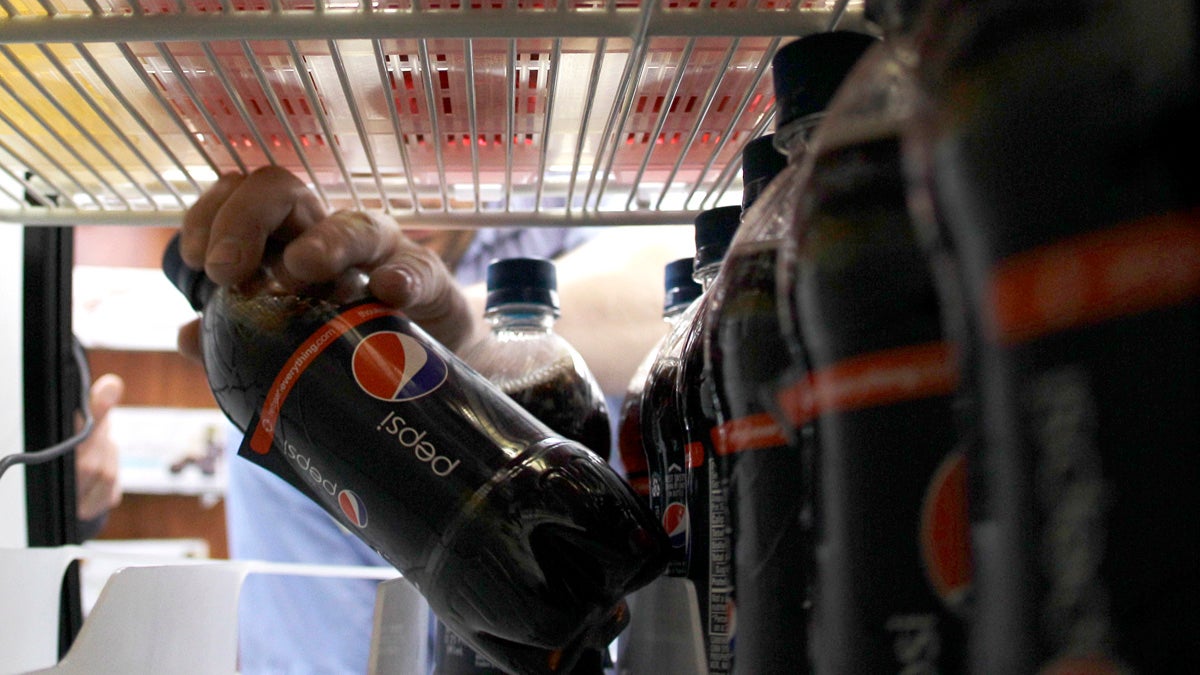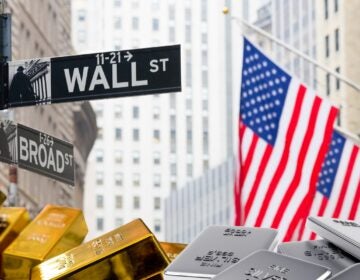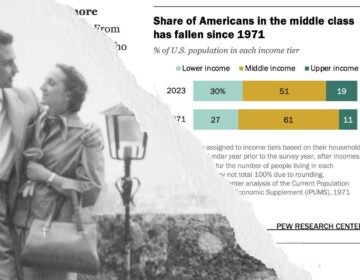Commonwealth Court: Philly beverage tax is legal
Listen
In this photo taken Oct. 4, 2010, Chris Shook, a driver with Harbor Pacific Bottling Inc., stocks a cooler with soda, in Elma, Wash. Washington state consumers started paying more this summer for candy, gum and carbonated beverages, but the main muscle behind the effort to overturn those new taxes is the soda industry, which is helping fund advertising for an initiative that seeks to repeal a temporary tax on carbonated beverages and bottled water, the sales tax on candy and gum, and to reduce business and occupation rates for some food processors. (AP Photo/Ted S. Warren)
Philadelphia’s tax on soda and other sweetened beverages is legal under state law, a panel of Pennsylvania appeals court judges ruled Wednesday.
It is the second time the courts have upheld the 1.5 cents-per-ounce tax. A lower court rejected the soda industry’s bid to stop the tax in December, just a few weeks before it took effect in January.
In the majority opinion written by Judge Michael Wojcik, the Commonwealth Court again rebuffed the industry’s argument that the city was illegally doubling down on items already subject to the state’s sales tax and taxing low-income consumers on SNAP or food stamp benefits.
Since the tax is levied on beverage distributors, not retailers, the industry’s argument doesn’t hold water, the majority said.
The ruling is a major victory for Mayor Jim Kenney’s administration, which pushed for the tax to fund several big initiatives, including an expansion of subsidized pre-K and major renovations at city parks, recreation centers and libraries.
But in a statement, Kenney was still playing defense.
“Our entire city desperately needs us to be able to move forward with the programs funded by the tax and we will be unable to do that in full until full legal action is resolved,” he said. “The beverage industry needs to see this ruling for what it is — a clear statement Philadelphia has the right to try to provide for its own — and cease the legal and public relations battle to which it has devoted millions.”
Case could head to the Pa. Supreme Court
One year after the tax was passed by Philadelphia City Council, the American Beverage Association has continued to fund an Ax the Bev Tax campaign on the airwaves, the internet and in supermarket aisles.
“We are deeply disappointed in today’s ruling,” said the ABA-funded Ax the Bev Tax Coalition in a statement. “But no ruling can obscure the pain Philadelphia’s beverage tax continues to inflict on families and local businesses. After only five and a half months, this tax has already caused many Philadelphians to lose their jobs – and more are at stake.”
The tax has led to 155 layoffs at local distribution facilities, said Teamsters union head Daniel Grace in a letter this week.
The ABA says it will appeal to the Pennsylvania Supreme Court, said attorney Shanin Specter.
At least one legal expert says the high court would likely be interested in taking up the case because of its major local and national implications.
“This is a sweeping tax that involves millions and millions of dollars that has not been instituted anywhere else in a similar fashion across the Commonwealth,” said John Hare, who heads up the appellate litigation department at the Philadelphia firm Marshall Dennehy. “So this could open the door to other municipalities looking at imposing similar taxes.”
City revising revenue projections
While the tax is levied on beverage distributors, many retailers have passed the full amount on to customers. For a typical 12-ounce can, that’s an extra 18 cents. For a two-liter bottle, the tax is more than a dollar extra.
So far, the tax has brought in about $25.6 million — lower than the city had projected by now to meet a $46 million goal by the end of June. The mayor’s office is planning to revise its revenue projections for the first six months, but is confident the tax will generate the $92 million per year promised going forward, said spokesman Mike Dunn.
Dunn also noted that the wage-tax collections from employees at restaurants and other businesses that rely on beverage sales were up about 15 percent in the first three months of the year.
Philadelphians For A Fair Future — the nonprofit that mounted a pro-tax campaign with the help of some big donors, including former New York City Mayor Michael Bloomberg — released a statement praising the decision.
“Already, the tax has supported 2,000 new pre-K seats, which will be expanded by thousands over the next few years and will rebuild recreation centers, parks and libraries in neighborhoods all across the city.”
However, the mayor’s office claims the legal challenge has slowed the progress of these initiatives because of an inability to plan on the tax’s long-term future.
WHYY is your source for fact-based, in-depth journalism and information. As a nonprofit organization, we rely on financial support from readers like you. Please give today.




